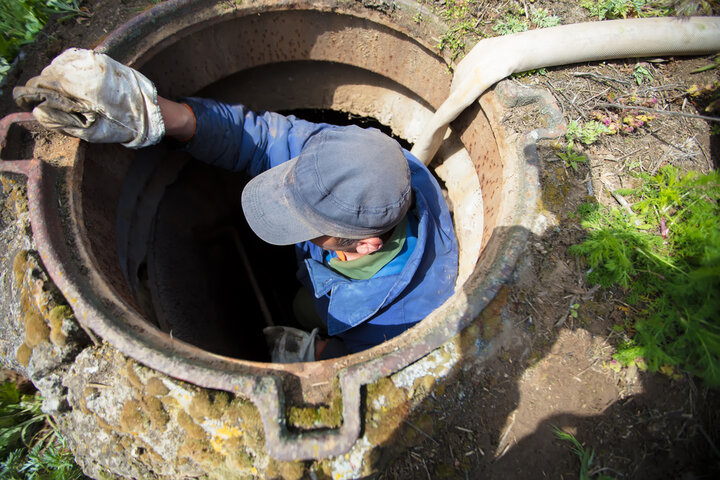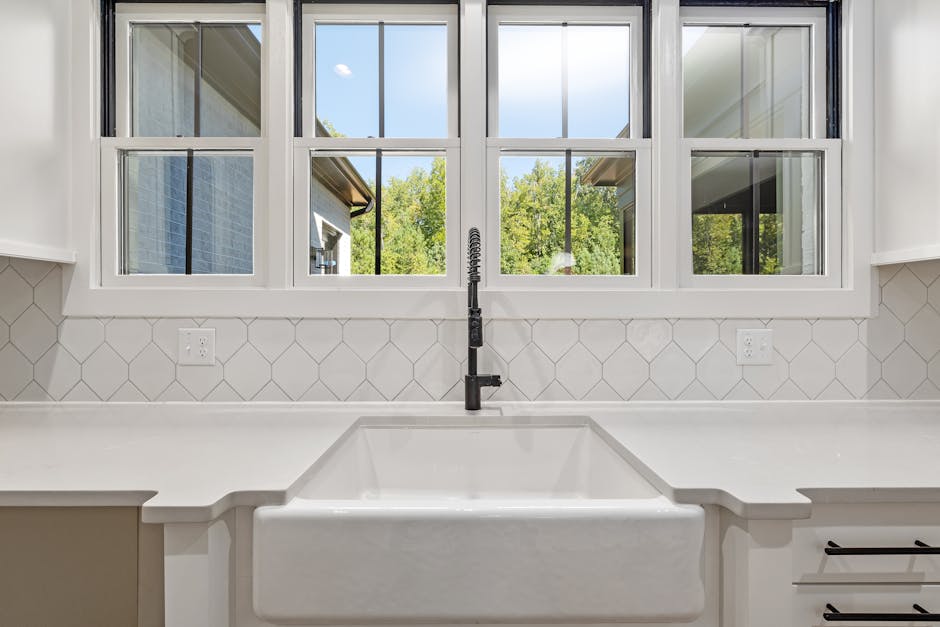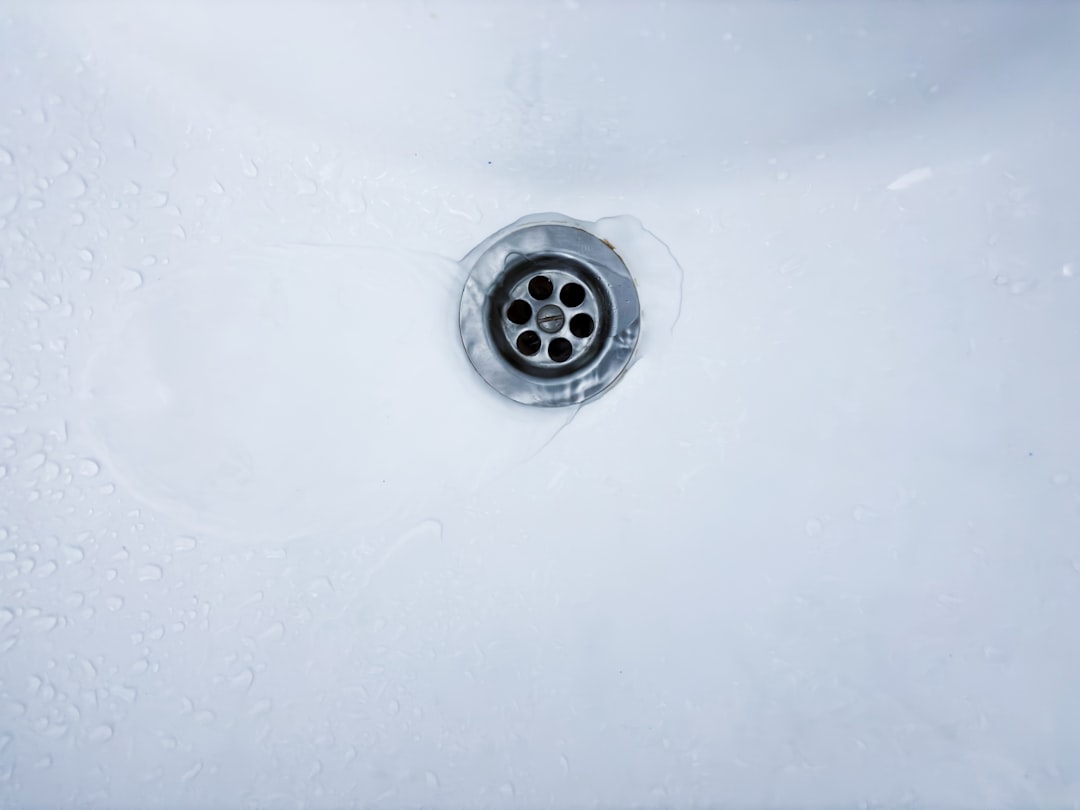
Common Causes of Drain Clogs in Sacramento Area Homes
Drains are the unsung heroes of your home, tirelessly carrying away wastewater and keeping your daily life flowing smoothly. However, over time, a variety of culprits conspire to create clogs, turning a minor inconvenience into a major plumbing headache. Understanding these common causes is the first step toward prevention, especially for homeowners in the Sacramento area.
- Hair and Soap Scum: In bathrooms, a combination of shed hair, dead skin cells, and the sticky residue from soaps and shampoos is a primary offender. This mix creates a stubborn, matted blockage that adheres to pipe walls, slowly but surely constricting flow.
- Grease and Food Particles: Kitchen drains are frequently assaulted by cooking grease, oils, and food scraps. While it might seem harmless to rinse these down the drain, grease solidifies as it cools, coating the inside of pipes and trapping other debris. Food particles, especially starchy or fibrous ones, contribute to the buildup, creating a formidable plug.
- Mineral Buildup (Hard Water): Sacramento, like many areas, contends with hard water. This means your water contains higher concentrations of dissolved minerals like calcium and magnesium. Over time, these minerals precipitate out of the water and form a hard scale on the interior surfaces of your pipes, significantly reducing their diameter and creating rough spots where other debris can easily snag and accumulate.
- Foreign Objects: Kids' toys, cotton swabs, dental floss, hygiene products, and even excessive toilet paper can find their way into drains and toilets. These items are not designed to dissolve and often become lodged, forming the core of a larger blockage.
- Tree Roots: This is a particularly prevalent and destructive cause of clogs for homes with older sewer lines and mature trees. Tree roots are constantly searching for moisture and nutrients, and the tiny cracks or loose joints in underground pipes provide the perfect entry point. Once inside, they grow and expand, creating an impenetrable network that traps waste and eventually ruptures the pipe itself.
Why This Problem Hits Harder Here in the Sacramento Area
Sacramento's unique environmental factors and residential characteristics often exacerbate common drain issues, making annual drain cleaning a particularly wise investment for local homeowners.
- Persistent Hard Water: As mentioned, Sacramento's water supply is known for its mineral content. This isn't just a minor nuisance; the continuous flow of hard water means a constant deposition of mineral scale inside your pipes. This buildup narrows pipes over years, making them more prone to catching hair, grease, and other debris. What might be a slow drain elsewhere can quickly become a full-blown blockage here due to the reduced pipe diameter from mineral deposits.
- Mature Trees and Invasive Roots: Many Sacramento neighborhoods, especially older, established ones, boast beautiful, mature trees. While aesthetically pleasing, these trees have extensive root systems that are perpetually seeking water. Older sewer lines, often made of clay or cast iron, are susceptible to cracks, shifting, and joint separations. These imperfections are irresistible to tree roots, which can infiltrate and create massive blockages, sometimes requiring extensive repair. Always Affordable Plumbing frequently addresses severe root intrusion issues in local homes.
- Clay Soil Conditions: The expansive clay soils common in the Sacramento Valley can also play a role. These soils swell when wet and contract when dry. This constant shifting can put immense pressure on underground plumbing, leading to misaligned pipe sections, cracks, or even complete pipe collapses. Such damage creates perfect snag points for debris and significantly impedes flow.
- Aging Infrastructure: A significant portion of homes in the Sacramento area were built decades ago, meaning their plumbing systems are reaching the end of their intended lifespan. Older pipes are more susceptible to corrosion, decay, and manufacturing defects that make them more vulnerable to clogs and damage.
Signs You Shouldn't Ignore Your Drains
Paying attention to these signs can help you catch issues early and prevent a plumbing emergency.
- Slow Drains: This is the most common and obvious indicator. If water is draining slowly from your sink, shower, or tub, it means there's a partial blockage impeding flow. Don't wait until it completely stops.
- Gurgling Sounds: Gurgling noises coming from drains or toilets after flushing or running water often indicate trapped air in the plumbing system. This usually points to a blockage that's preventing proper ventilation and water flow.
- Foul Odors: Unpleasant, lingering smells emanating from your drains, especially a distinct rotten egg or sewage-like odor, signal a buildup of decaying organic matter or a problem with your sewer line's vent system. This indicates bacteria feeding on trapped debris.
- Water Backing Up: If water backs up into another fixture when you use a different one (e.g., your toilet bubbles when the shower runs, or the shower fills with water when the washing machine drains), it's a strong sign of a main sewer line blockage affecting multiple fixtures.
- Multiple Clogged Fixtures: If several drains in your home are simultaneously slow or completely clogged, it's a nearly certain sign that the problem lies in your main sewer line, not just an individual fixture's trap.
- Presence of Drain Flies or Fruit Flies: These small insects are attracted to stagnant water and decaying organic matter in drains. If you notice them consistently around your sinks or tubs, it's a clear indication of a significant buildup within your pipes.
How Sacramento Weather Makes Drain Issues Worse
While drains are primarily internal systems, external weather patterns in the Sacramento region can surprisingly impact their health and performance, accelerating wear and tear or creating conditions conducive to clogs.
- Summer Heat and Evaporation: Sacramento's notoriously hot, dry summers can have indirect effects on your plumbing. Extremely dry soil causes it to contract, potentially shifting underground pipes and exacerbating minor cracks. In outdoor drains or less-used indoor drains, standing water can evaporate faster, leaving behind concentrated mineral deposits that contribute to scaling and blockages. Additionally, the heat can accelerate the decomposition of organic matter in clogs, intensifying foul odors.
- Winter Rains and Increased Water Table: The heavy rains typical of Sacramento winters can saturate the ground. This increased moisture encourages tree roots to grow more aggressively, seeking out water sources like your sewer lines. Furthermore, a high water table can exert external pressure on buried pipes, worsening any existing weaknesses or cracks. If your main sewer line has a crack, heavy rainfall can sometimes lead to water infiltration into the sewer system, potentially contributing to backups.
- Seasonal Debris: Fall brings falling leaves and debris that can find their way into outdoor drains or storm drains, and in some cases, indirectly impact the main sewer line if not properly managed. During all seasons, fluctuations in household water usage (e.g., more showers in summer, more laundry in winter) can put varying stresses on your plumbing system, sometimes revealing latent issues.
Step-by-Step Drain Cleaning Troubleshooting Guide
Before calling a professional, there are several effective DIY steps you can take to address minor clogs. Always proceed with caution and wear appropriate protective gear.
- The Plunger Power: For many clogs, a simple plunger is your first line of defense. Ensure you have a good seal over the drain opening. For sinks and tubs, block the overflow drain with a wet cloth for maximum suction. Plunge vigorously for 15-20 seconds, then quickly pull up. Repeat several times.
- Boiling Water and Dish Soap: This method is particularly effective for grease clogs in kitchen sinks. Carefully pour a kettle of boiling water down the drain, followed by a generous squirt of liquid dish soap. Let it sit for 15-20 minutes, then flush with hot tap water. The boiling water helps melt the grease, and the soap helps break it down and carry it away.
- Baking Soda and Vinegar: A natural alternative to harsh chemicals. Pour one cup of baking soda down the drain, followed by one cup of white vinegar. The mixture will fizz and bubble. Cover the drain with a stopper and let it sit for 30 minutes to an hour (or even overnight for stubborn clogs). Flush with hot water. This creates a mild chemical reaction that can help break down organic matter.
- Cleaning the P-Trap: For bathroom sink clogs, hair and debris often accumulate in the P-trap (the U-shaped pipe under the sink). Place a bucket under the trap, then use a wrench to loosen the slip nuts on either side. Remove the trap, clean out any debris, and then reassemble. Be sure to hand-tighten the nuts first, then give a quarter turn with the wrench.
- Drain Snake/Auger: For clogs deeper than a plunger can reach, a small hand-held drain snake can be effective. Feed the snake into the drain until you feel resistance. Twist the handle to hook or break up the clog, then slowly pull it out. Always follow manufacturer instructions for safety.
Frequently Asked Questions
How often should I get my drains professionally cleaned?
For most Sacramento area homes, an annual professional drain cleaning is highly recommended. Homes with older plumbing, significant tree root issues, or chronic clogs may benefit from bi-annual service. Regular cleaning prevents buildup, extends pipe life, and helps avoid emergency situations.
What's the difference between drain cleaning and rooter service?
Drain cleaning typically involves clearing common household clogs using methods like snaking or hydro-jetting. Rooter service specifically refers to clearing clogs caused by tree root intrusion, often requiring specialized augers with cutting blades to bore through and remove the roots from the sewer line.
Are chemical drain cleaners safe for my pipes?
No, most chemical drain cleaners are not recommended. They are highly corrosive and can damage pipes, especially older ones, and are ineffective against severe clogs. They also pose health risks and are harmful to the environment. It's always better to use mechanical methods or call a professional.
Can tree roots really damage my sewer line?
Absolutely. Tree roots are a major cause of serious sewer line damage in Sacramento. They infiltrate cracks, grow, and can eventually crush or completely block pipes, leading to extensive backups and costly repairs. Regular inspections can identify root intrusion early.
How can I tell if I have a main sewer line clog?
Signs of a main sewer line clog include multiple fixtures draining slowly or backing up simultaneously, gurgling sounds from several drains when one is in use, or sewage backing up into the lowest drains in your home (like a basement shower or toilet).
What is hydro-jetting, and when is it necessary?
Hydro-jetting is a highly effective drain cleaning method that uses high-pressure water streams to blast away tough clogs, grease, mineral buildup, and even tree roots from the inside of pipes. It's necessary for severe, stubborn clogs, main sewer line blockages, or as a preventative annual cleaning.
Is hard water in Sacramento bad for my drains?
Yes, Sacramento's hard water contributes significantly to drain issues. The minerals in hard water (calcium, magnesium) create scale buildup inside pipes over time, narrowing their diameter and making them more susceptible to clogs from hair, grease, and other debris.
Other Blogs
Customer Testimonials
See what our satisfied customers have to say about their experience with Always Affordable
Plumbing & HVAC.
Latest Blog Posts


Budget-Friendly Drains: Finding Affordable Cleaning in Roseville






